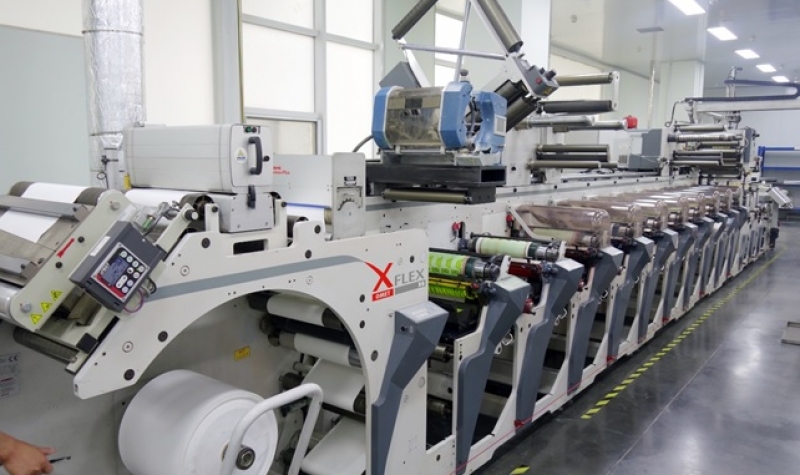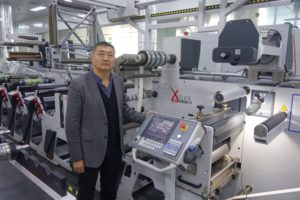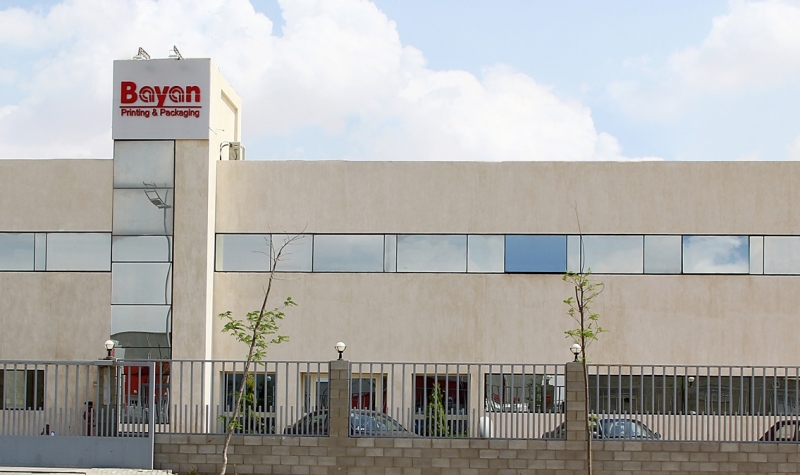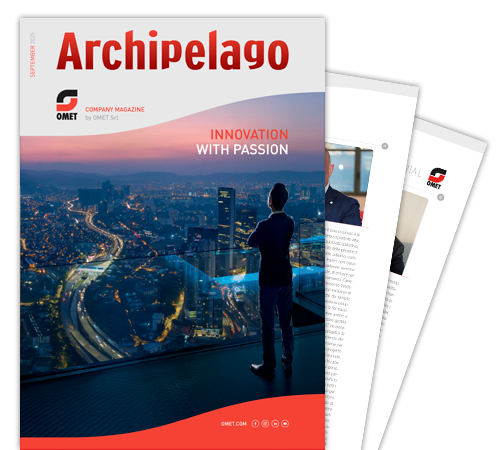
Beijing Deji installs second OMET X6
Six years after installing its first OMET XFlex X6, one of China’s leading privately-owned label converters, Beijing Deji Informational Technology Co Ltd has added a second almost identical press at its facility in the Tong Zhou District, near to China’s capital city. Both presses are ten-colour machines with full UV curing and a 430mm web width. Other capabilities include screen, hot and cold foil, delam/relam, web turn bars and twin die cutting stations. Since being fully commissioned, the presses have continued to add at least 20% to the company’s productivity year on year, according to owner Mr Yu DaYang.
Established initially in 2004 in the Chang Ping zone on the northern side of Beijing, the company’s early purchases were Labelmen rotary letterpress lines for the production of automatic labelling labels. As demand grew and diversified into new markets, Mr Yu decided he needed to research what the new flexo presses had to offer and undertook extensive print trials of his work on the leading manufacturers’ machines. “ I chose OMET because the print trial went well, and the quality was very good. We needed a machine quickly and they were able to deliver in eight weeks, which with a competitive price, made the choice easy.” He was also influenced by the fact that OMET has a good reputation in China, with more than 70 users, and the Italian manufacturer has a well-established sales and service facility in Suzhou.
 Today, much of Beijing Deji’s work is for the white wine trade and in the dairy industry, especially milk labels, and the two OMET lines are kept busy working 20-hour days Monday to Saturday. It was this rapid growth in business that highlighted the need for a second press, and after visiting Italy for more trials, the order was agreed and signed at Labelexpo Europe 2017 in Brussels, with the press being installed in August 2018. Praising the X6 lines for their ease of make-ready, Mr Yu said that his run lengths vary between 3,000 and 100,000 linear metres, with many of the jobs run off at around 75m/min owing to the complexity of the label. “Significantly, the OMETS take only half the time of their competitors to make ready, which means that other companies cannot compete with us on the work we produce. The X6 is also especially good at printing on lightweight unsupported films and has IML capability. Best of all, it does it all inline in one pass,” he added.
Today, much of Beijing Deji’s work is for the white wine trade and in the dairy industry, especially milk labels, and the two OMET lines are kept busy working 20-hour days Monday to Saturday. It was this rapid growth in business that highlighted the need for a second press, and after visiting Italy for more trials, the order was agreed and signed at Labelexpo Europe 2017 in Brussels, with the press being installed in August 2018. Praising the X6 lines for their ease of make-ready, Mr Yu said that his run lengths vary between 3,000 and 100,000 linear metres, with many of the jobs run off at around 75m/min owing to the complexity of the label. “Significantly, the OMETS take only half the time of their competitors to make ready, which means that other companies cannot compete with us on the work we produce. The X6 is also especially good at printing on lightweight unsupported films and has IML capability. Best of all, it does it all inline in one pass,” he added.
As a private company, Beijing Deji is able to steer its own course for development, and Mr Yu has ambitious plans for growth. In 2018 the company will generate sales of Yuan 50m, but with the new XFlex press now fully operational, he is aiming at Yuan 80m for 2019, and is fully confident of achieving it with the added-value capabilities of his OMET lines. “Very few of our competitors have the technical competence to produce the high-end labels that we thrive on here.”
Questioned on the growth and development of digital printing, he replied: “We have digital capacity already and it accounts for around 40% of our business, while along with the operation of our new factory in south China, there’ll be greater growth.” Believing the longer run lengths and lower demand for versioning in China, compared with the West, more alternatives can mitigate against digital print technology in its current form, but the new generation will activate digital printing with some innovative packaging applications, being able to create a new business model rather than a traditional factory model. Mr Yu is however keeping an eye on the proliferation of digital/flexo hybrid lines, which is the future of companies like Deji.
Despite general opinion to the contrary, Mr Yu says China takes its environmental responsibilities very seriously, especially in the narrow web print sector, and he knows that only ongoing investment in the latest technology will be good enough to meet the stricter targets. This is part of his rationale for targeting the top end of the label market, where the margins are better, and provide the funds for air purification systems and exhaust emission control. “Quality in – quality out, makes for a healthy and successful business, and those who deal only in price cutting cannot make the money needed for the latest technology,” he added, commenting that the company is currently attracting a lot of business through online tendering, which unlike an auction with many bidders, is limited to targets with high quality requirements rather than price only.
With the China’s burgeoning growth in population and income comes increased brand awareness on packaging diversification as well as more precise service that places huge pressure on the packaging sector of the printing industry. Independent companies that can adopt more freedom of thought and action, like Beijing Deji, will be instrumental in fulfilling this demand. With plans afoot for another OMET – this time an XFlex X4, Mr Yu and his staff of 60 can look forward to a very bright future indeed!
 is the web magazine with all news about OMET Group
is the web magazine with all news about OMET Group 





